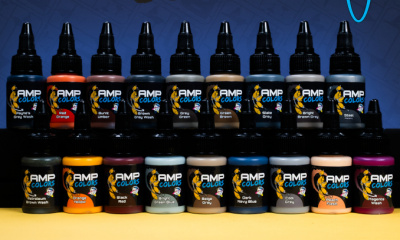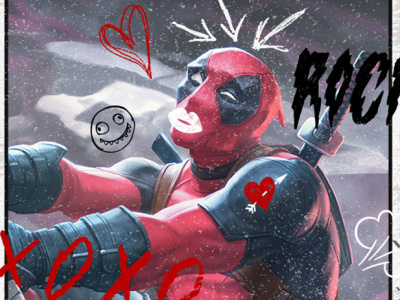Charles Ryan, the Category Manager for RPGs at Wizards of the Coast, has provided ICv2 with responses to questions we posed about the addition of 'decency' standards to the d20 license, which allows third-party publishers to mark their products as compatible with Dungeons and Dragons (see 'WotC Adds d20 'Decency' Standards'). Two publishers have already announced that they plan to stop using the d20 mark (see 'Valar Project Eschews d20' and 'Avalanche Ends d20 Publishing').
When was V5 of the d20 license implemented?
The first week of September. In the past, we haven't bothered to make public announcements about revisions to the license, so we didn't think to make a big deal about it this time, either. We usually try to implement revisions to the license at the same time as we post changes to the System Reference Document (SRD), but this time, because we needed to get the 3.5 SRD up as soon as possible and our staff was working very hard on the SRD revisions, we simply weren't able to.
Why were quality standards added?
To improve the value of the trademark. We already use these standards (and have for a long time) for many of our other products such as novels and electronic games, but we didn't have corresponding standards for d20 products. These changes mean that every licensee using our trademarks is held to similar standards.
Perhaps more importantly, d20 is a trademark that should not only indicate compatibility with a rules system but, like any trademark, should designate a basic quality standard to consumers. It's important to remember that d20 is a trademark, and d20 products are published under a license -- a license no different than a major media license like Star Wars or Star Trek. Even though d20 is a free license, it's still a license, and the d20 trademark has tremendous value for every publisher in the RPG business. We took action to keep it viable, valuable to the industry, and strongly differentiated from the OGL (which is a copyright license, not a trademark license). We believe that everyone in the d20 market will benefit from that.
The timing of the change indicates a possible connection to the upcoming release of the Book of Erotic Fantasy (see 'Valar Project Announces Erotic RPG'). Is there a connection?
Absolutely not. Really. As Anthony Valterra (of the Valar Project, publisher of the BoEF) has pointed out on ENWorld's boards, we began discussing the most recent changes to the license last fall, months before he began work on the BoEF--and he was in on those discussions from the beginning. In fact, the commonly-held assumption that we made the changes based on BoEF also assumes that we did not consider the entire d20 marketplace when we discussed changing the license. While we're certainly not omniscient, we carefully looked around and realized that 99% or more of the product currently on the shelves (or that we know of in production) meets these standards. Every publisher considering whether to publish under d20 or the OGL should keep that in mind.
At what level (corresponding to an X movie, an R movie, a PG movie) will the 'decency' standards be imposed?
If you look at the core D&D books, you'll get a pretty good idea of what we think meets these standards. (I say 'core' to separate out books intended for mature audiences--but even Book of Vile Darkness meets these standards.) Again, every publisher considering whether to publish under d20 or the OGL should keep that in mind.
Would Wizards of the Coast publish the Book of Vile Darkness today (after the adoption of the d20 license revisions), and will it reprint the title if it goes out of print?
Sure. We still publish Book of Vile Darkness, and we intend to keep it in print.
If the answer to that question is that Wizards would publish or reprint the title today, what has been accomplished by establishing these standards for other publishers, since material appropriate only for mature readers will still be published in association with Dungeons and Dragons?
The changes and clarifications to the STL are not meant to keep mature material from being published. But, clearly, we have better control over our designers, artists, and products than we do over other companies. When we produce mature products, we can make sure that material is presented in a mature way, and that the products are appropriately marked.
Put another way, as the licensor, it's our responsibility to shepherd the license and the trademark -- to protect it and maintain its value for us and for the licensees. We can do that with our own products in a way that we can't with third-party products.
In general, unless a third-party publisher asks our advice, we don't see third-party product until it's on a store shelf. If the product is not presented judiciously or is not appropriately labeled, it's a problem for everyone. Establishing the new standards should encourage third-party publishers that want to release mature material to be pro-active about contacting us with specific concerns (just as publishers sometimes contact us about other provisions of the license, if they think they might be skating close to the edge of the rules). It also encourages them to consider the OGL as an alternative, and most importantly to be self-monitoring.
Since companies will not want to release items that won't meet the Wizards' standards, will Wizards review material before release to determine whether or not it meets Wizards' 'quality standards?'
No. Look, this is no more a concern now than when we changed from version 1.0 to 2.0, 3.0, or 4.0. Remember, this is the fourth time we've changed the STL. Wizards of the Coast has always had the right to review product produced under the d20 license and to request actions necessary to deal with incorrect usage of the license.
Third-party publishers have always faced this issue -- it's part of the terms of the license, and always has been. Most of the breaches that have occurred over the past few years have been minimal, and our usual method of handling problems is to say 'Please don't do that again, and fix it when you reprint.' So the fear that 'companies will not want to release items that won't meet the Wizards' standards' has really been blown out of proportion. We've never required that a d20 product be recalled, and we hope that doesn't ever happen. (Of course, we can't exclude it from the realm of possibility in the case of serious or intentional breaches.)
We have no intention of mandating a pre-publication review process for every d20 product published. Who needs that kind of work?! We believe that d20 publishers already know what's within the boundaries and what's questionable. We believe that d20 publishers remain completely capable of differentiating between d20 and OGL products, and of determining on their own which license best suits them. We believe that d20 publishers remain completely capable of enforcing the standards within their own products--just as they've enforced the d20 license for the past 3+ years.
I hope that answers your questions, and, more importantly, puts to rest the many fears people have been expressing over the past week!







